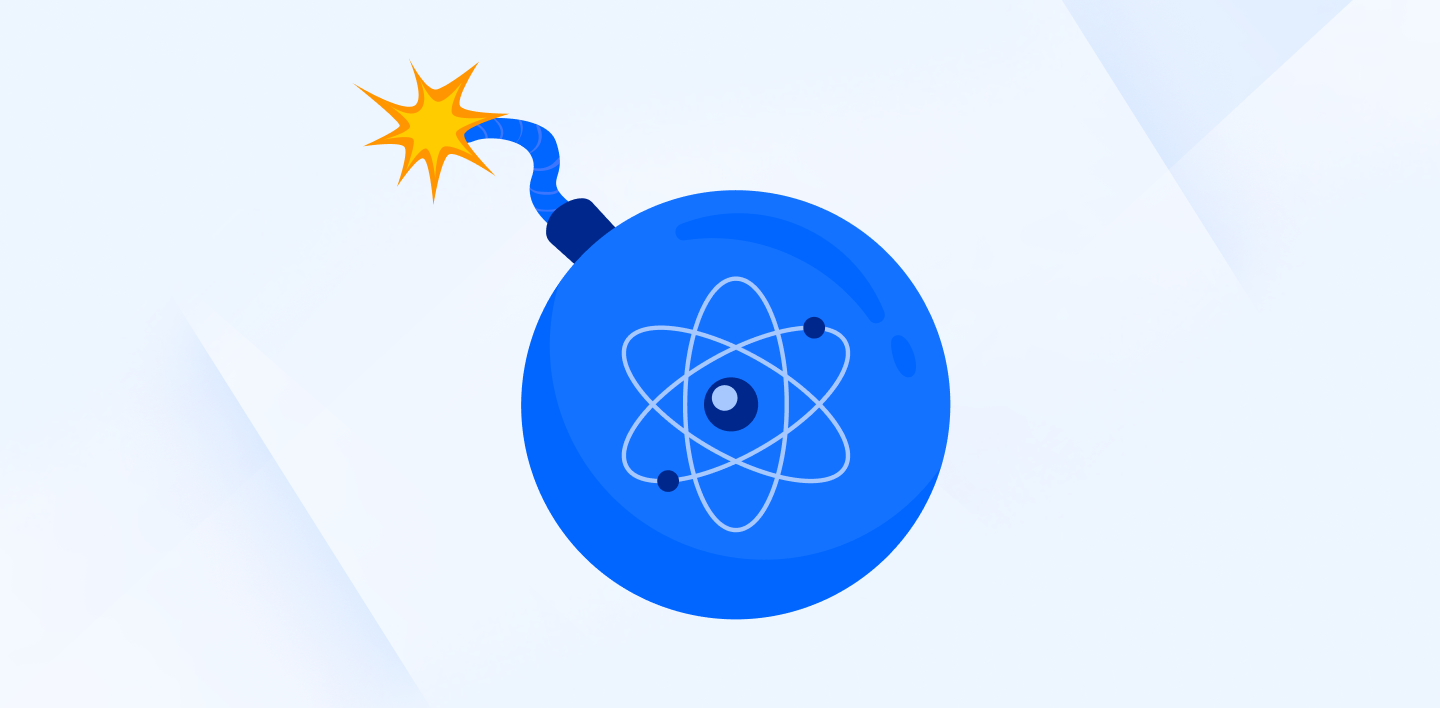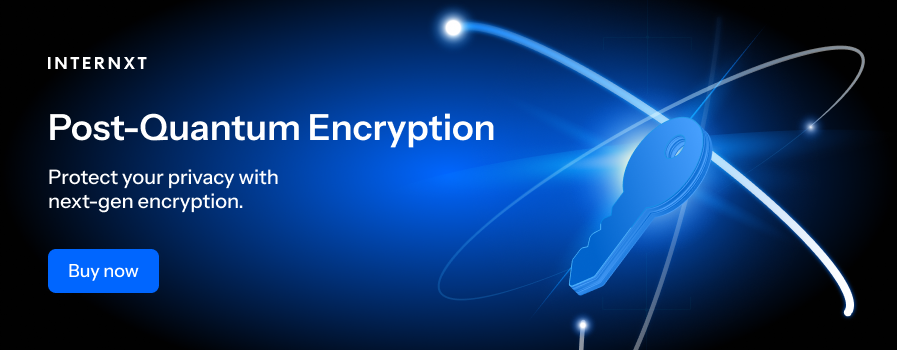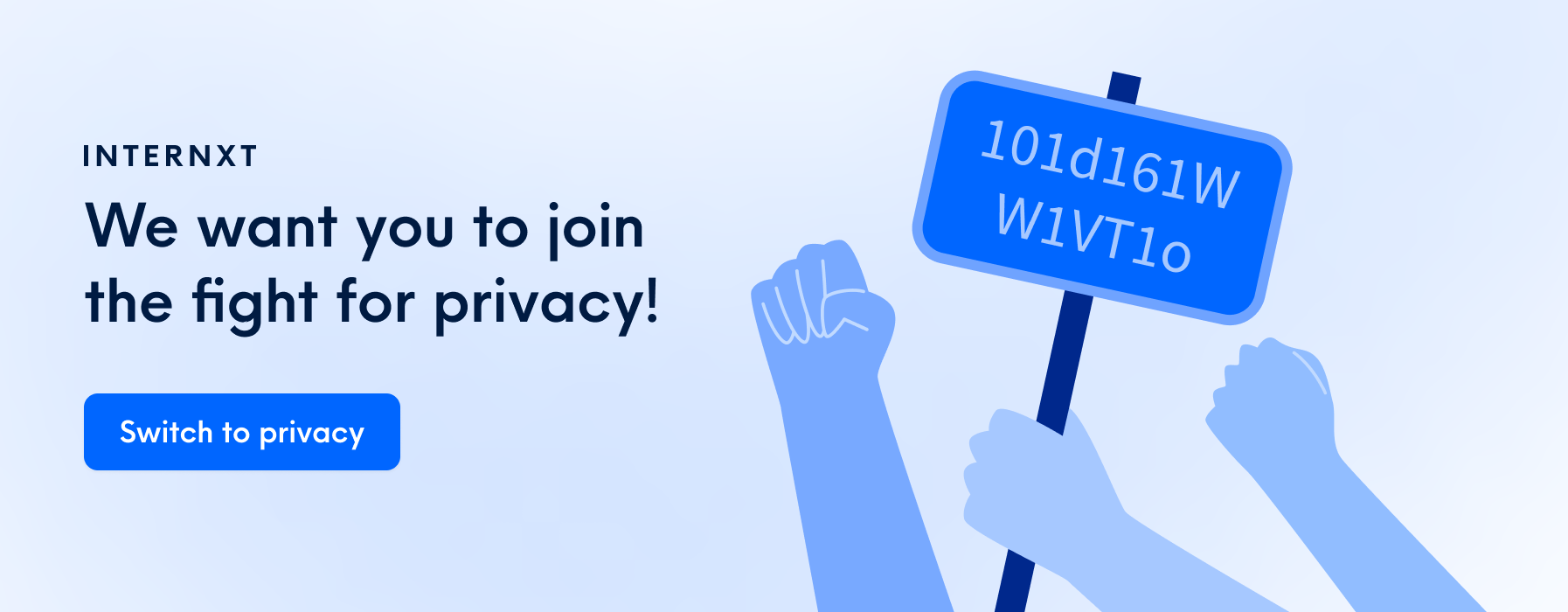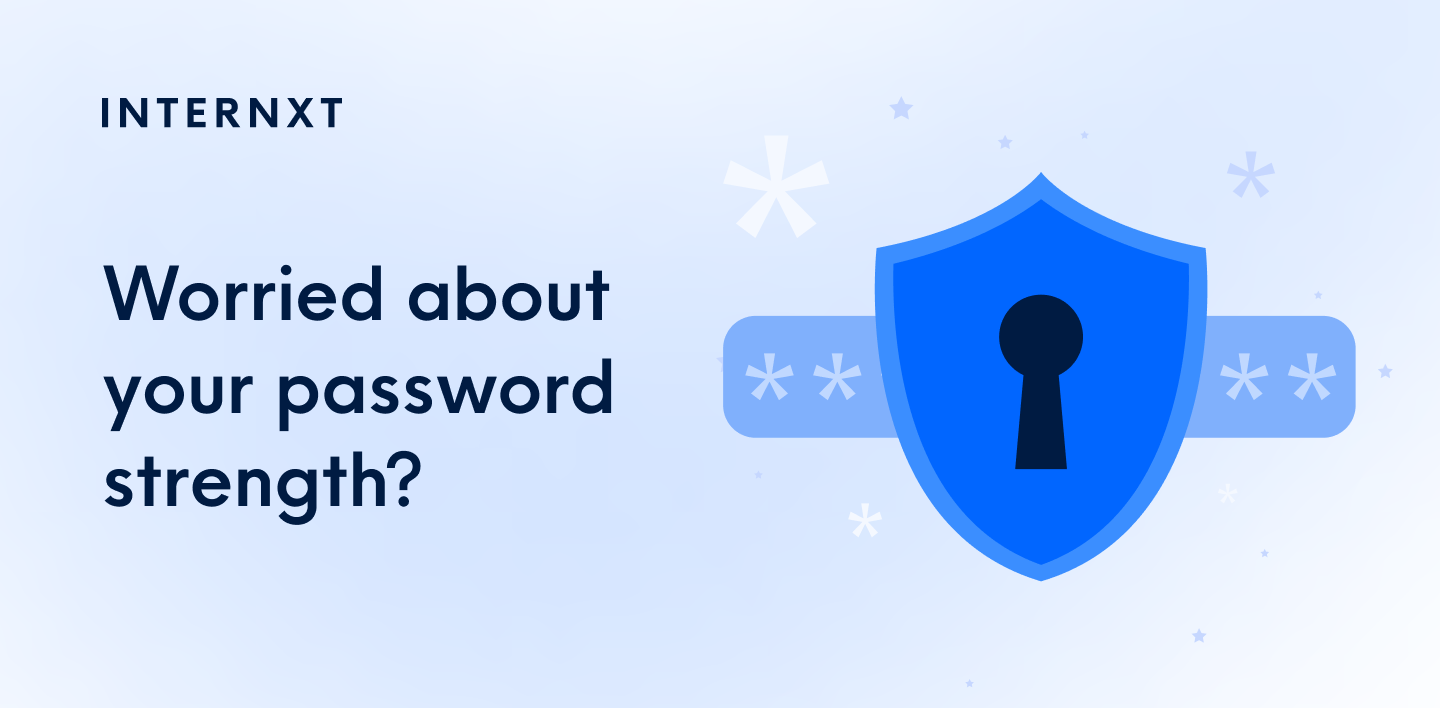What Are The Risks of a Quantum Apocalypse, and Should We Worry?

Apocalypse now? Later? Will it ever happen?
Computers can solve many problems in our day-to-day lives, making working remotely, storing files, and connecting with people from across the globe significantly easier.
But has the development of computing technology gone too far? The potential of quantum computers may lead to technical breakthroughs in machine learning, science, and healthcare, but these powers may come at a cost.
Current computer systems are far less powerful than quantum computers. The benefit of this for internet security is that a regular computer would take many, many, many years to decrypt data if it could do it at all.
This means encrypted files remain secure, even from hackers trying to steal them, unless the quantum apocalypse happens. For this reason, Internxt is the first cloud storage provider that protects your files with post quantum cryptography. With our award-winning and advanced encryption, your files and data remain protected against the future threats of quantum computers.

The "quantum apocalypse" is a hypothetical scenario where the development of quantum computing leads to unforeseen and potentially catastrophic consequences for online security.
Quantum computers can take encrypted data and theoretically decrypt files in seconds, causing concerns about our data protection.
If you're interested in the quantum apocalypse, there’s even a cybersecurity movie of the same name. (Though it only has three stars).
But should we worry about the quantum apocalypse, and what measures are companies taking to prevent it? This article will explore this fascinating tech area if you're interested in learning more about quantum computing, quantum cryptography, and the potential for a quantum apocalypse.
Table of contents
- What are quantum computers, and how do they work?
- Why there is potential for a quantum apocalypse
- The risks of a quantum apocalypse
- Can we avoid a quantum apocalypse?
What are quantum computers, and how do they work?
Quantum computing is a multi-disciplinary field combining aspects of computer science, physics, and mathematics to solve problems, such as decrypting data, that traditional or supercomputers cannot.
Here’s a comparison of how quantum computers work differently than conventional computers.
- Regular computers use bits (1 and 0) like tiny switches to store and process information. These tiny switches can only be on (1) or off (0).
- Quantum computers use qubits, which simultaneously represent a 1, 0, or any value, thanks to quantum mechanics. This ability to be in three different states at the same time is called superposition.
Superposition means quantum computers can perform many possibilities when solving problems, making them incredibly powerful for solving tasks. When information is fed into qubits, they engage with one another, enabling multiple computations. Quantum computers also offer a range of potential outcomes instead of a singular answer.
Simply put, imagine a traditional computer going up against a quantum computer to find the solution to a complex maze. A classic computer would explore each path one by one due to the limited bits it can use.
On the other hand, a quantum computer can explore all paths simultaneously, thus finding the solution much quicker. Whereas Quantum computers may be beneficial in some cases, they also have the potential for colossal security risks, raising concerns of a potential quantum apocalypse.

Why there is potential for a quantum apocalypse
Despite the advantages of quantum computing, the risks of a quantum apocalypse stem from the potential to break existing encryption protocols.
Potential to break encryption
One encryption method is public-key cryptography, which utilizes a pair of mathematically linked public and private keys. The public key is widely distributed and used for encryption, while the private key is kept secret and used for decryption.
The data is encrypted using the recipient's public key. Only the corresponding private key, held by the recipient, can decrypt the message. Public-key cryptography relies heavily on mathematical problems like factoring large numbers and other areas of advanced mathematics.
While computationally expensive for classical computers, Shor's powerful quantum algorithm can potentially solve these problems much faster, theoretically breaking this type of encryption.
Secondly, there’s symmetric key cryptography or private key cryptography. This method uses a single shared secret key for both encryption and decryption. Both parties involved must possess the same key to encrypt and decrypt messages.
While less susceptible than public-key cryptography for specific implementations, some symmetric key ciphers might also be vulnerable to future advancements in quantum computing algorithms.
Shor’s algorithm
Shor's algorithm allows some future quantum computers to potentially unlock the codes used in current encryption methods with ease, potentially exposing your online information. Here's how it works:
- Preparation: The algorithm starts by categorizing the number (e.g., the "lock") into a special quantum state. This state is similar to a blurry image containing all possible factors (e.g., the "keys") as possibilities.
- Exploration: The algorithm then performs a series of calculations using the quantum computer's unique abilities. These calculations help the blurry image sharpen, increasing the likelihood of revealing one of the true factors.
- Measurement: Finally, the quantum state is measured, collapsing the possibilities into a single definite outcome. This outcome might be one of the number's prime factors (the actual "key"). However, it's important to understand that this is not guaranteed with a single run.
Grover’s algorithm
Unlike Shor's, Grover's algorithm isn't designed for cracking codes but rather for finding a specific item in a huge, unsorted list much faster than a regular computer.
Think of trying to locate a needle in a haystack. A regular computer would check every piece of hay, but Grover’s algorithm works this way:
- Preparation: It starts by creating a special quantum state that represents every piece of hay (data point) in the haystack at the same time. Think of this state as a giant, blurry cloud encompassing the entire haystack.
- Amplification: The algorithm then performs a series of operations like magic tricks. These "tricks" act like a spotlight, gradually focusing on the needle (the desired data point) while dimming the hay around it. It's like repeatedly shining a light on the haystack and slowly revealing the needle beneath the hay.
- Measurement: Finally, the quantum state is measured, collapsing the possibilities into a single outcome. This outcome, thanks to the amplification, has a high probability of being the needle (the desired data point) you were looking for.

The risks of a quantum apocalypse
There are many concerns about what theoretically could happen should quantum computers become the new norm in our digital lives. And while these threats may not be imminent, it’s important to know about the power these computers have and what measures people can take to avoid a quantum apocalypse.
Hackers, data theft, and more
Our lives are so integrated into the internet, from buying things online, online banking, uploading photos, or using messaging apps. Luckily, all of this information is encrypted.
However, Harri Owen, chief strategy officer, says the risk of a quantum apocalypse comes from the idea that:
"Once a functioning quantum computer appears that will be able to break that encryption... it can almost instantly create the ability for whoever's developed it to clear bank accounts, to completely shut down government defense systems - Bitcoin wallets will be drained."
This is the risk for our data, but the dangers of a quantum apocalypse can also occur from governments.
The US, UK, Russia, and China are all participating in a cyber race to develop quantum computers to give their country a competitive edge in fields such as breaking encryption to expose sensitive information.
This could include classified government documents, military secrets, or sensitive financial data, potentially compromising national security and giving an unfair advantage to the country with the advanced quantum computer technology.
Widespread reliance on encrypted communication channels could be compromised, potentially hindering international cooperation, disrupting global trade, and hindering communication during crises.
Data leaks and hacks on a global scale are also a possibility. Companies that harvest your data without your permission store it in huge data centers. The security protocols are strong enough to protect it, but data thieves can use quantum computing to break this encryption and potentially steal it.
Public service disruptions
The quantum apocalypse could hypothetically cause issues on a global scale for internet services, communication, and information. Power grids, transportation, and other public services rely on advanced digital communication to ensure they run smoothly.
Quantum computers may have the power to manipulate or sabotage their security measures. This could lead to widespread disruptions, impacting essential services, such as police, fire, and healthcare, causing economic and societal harm.
Misinformation
The ability to manipulate information online could become significantly easier with quantum computers. Threat actors could use quantum algorithms to create highly convincing deepfakes or synthetic media, further blurring the lines between truth and fiction.
This could exacerbate the spread of misinformation and propaganda, making it harder for individuals to discern reliable information online.
Challenges to digital identity and authentication
Current digital identity and authentication systems often rely on cryptographic methods that could be vulnerable to quantum attacks, leading to issues like identity theft, unauthorized access to accounts, and disruption of secure authentication protocols.

Can we avoid a quantum apocalypse?
While the idea of a quantum apocalypse is scary, it’s hypothetical right now. The world would be in big trouble if experts were not actively working to combat the consequences.
Luckily, this is not the case, and much is being done to avoid a quantum apocalypse and keep our data safe; here’s how.
Post-Quantum Cryptography (PQC)
This is the primary approach, focusing on creating new encryption algorithms resistant to attacks from quantum computers. Organizations like the National Institute of Standards and Technology (NIST) are leading the charge, conducting global competitions to identify and standardize robust PQC algorithms.
Once secure PQC algorithms are finalized, a coordinated effort is crucial to ensure a smooth transition from current encryption methods. This involves updating software, hardware, and protocols across various sectors, requiring collaboration between governments, businesses, and individuals.
Updating cybersecurity protocols
Implementing other cybersecurity measures beyond encryption is essential and easily implemented. Here are some things you can do
- Implementing multi-factor authentication (MFA): Adding an extra layer of security beyond passwords.
- Regularly updating software and firmware: Patching vulnerabilities promptly to minimize attack surfaces.
- Raising awareness and education: Educating individuals and organizations about potential threats and best practices for online safety.

Staying up to date in cybersecurity
We are lucky enough that advanced technology will help prevent future tech disasters, and governments, scientists, and others in the STEM community are working hard to avoid a quantum apocalypse.
But what can you do to future-proof your security against this event? Whether a digital apocalypse is a hypothetical scenario or not, staying up to date with cybersecurity is key so you can actively protect your data with helpful cybersecurity resources.
The cybersecurity community is always active, so you can keep up to date with the tech world by following:
Knowledge is key, and by researching what is currently happening in the tech world, you can adjust your cybersecurity practices accordingly to protect your data.
Should we worry about a quantum apocalypse?
Quantum computing is still in its infancy and experimental stage, and there are only a few quantum computers in existence today that are accessible to researchers and developers.
There are also some limitations quantum computers still face, meaning we are far away from the slightest possibility of a quantum apocalypse. For example, quantum computers face limitations in:
- Scalability, reliability, and error correction.
- Sensitivity to external noise and interference can affect the qubits process when solving problems, resulting in errors or loss of information.
- Quantum computers need extremely low temperatures to operate properly, making them incredibly expensive and difficult to build and maintain.
- Limited memory and storage capacity limit the size and complexity of the problems they can handle.

So, while quantum computers are on the horizon, there is still a long way to go before they become the new norm. By that time, the leading tech companies in quantum computing, such as IBM are working hard to make the world “Quantum Safe” to avoid a quantum apocalypse.
It's important to note that efforts to avoid a quantum apocalypse are ongoing, and the timeline for full implementation of Post-quantum cryptography and other measures is still evolving.
While we may not have to worry about a quantum apocalypse, it is equally important to stay safe online by using secure secure cloud platform, effective cybersecurity protocols, and staying up to date with what’s happening with advanced technology and how this could affect your privacy.
While we may not have to worry about a quantum apocalypse, it is equally important to stay safe online by using secure cloud storage, effective cybersecurity protocols, and staying up to date with what’s happening with advanced technology and how this could affect your privacy.

